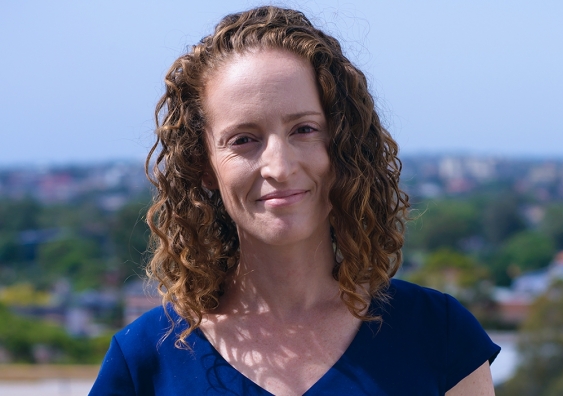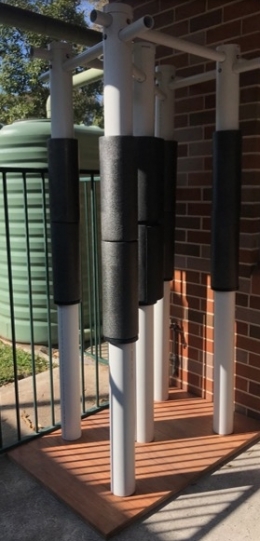Problem solvers make technology accessible for everybody
UNSW students and people with disabilities are working together on creative ways to make technology usable for more people.
UNSW students and people with disabilities are working together on creative ways to make technology usable for more people.

A pilot program that inspires UNSW Engineering students to develop innovative technology for people with disability has been named ‘best innovation’ by the University’s Division of Equity, Diversity & Inclusion.
The program, Connect Equip, gives students the opportunity to connect with people living with disability and co-design a tailored device that enhances their quality of life and participation in society.
Dr Lauren Kark, an Associate Professor in the Graduate School of Biomedical Engineering, was one of five recipients awarded a $5000 Small Grant by the Division of Equity, Diversity & Inclusion in 2019. The division’s grant program launched last year aiming to encourage and support students and staff to foster a campus culture that promoted equity, diversity and inclusion.
Dr Kark started Connect Equip amid growing concern that technology was often unavailable and did not cater to the needs of people with disabilities.
“In a lot of my research, I work with people with disability, and I can see the frustration of wanting to participate but not being able to because they can’t get their hands on the technology that they need to participate,” she said.
Dr Kark identified that a major problem was the limited exposure some engineers had to people with a disability. “Many students graduate and go into the workforce designing technology intended to improve quality of life but have never encountered someone with a disability or chronic illness,” she said.
'I work with people with disability, and I can see the frustration of wanting to participate but not being able to because they can’t get their hands on the technology that they need to participate.'
Connect Equip aimed to change that by providing engineering students with the opportunity to work collaboratively with people with a disability and better understand their needs, design solutions and produce a prototype.
The pilot program was initially designed as an elective unit that engineering students could enrol in to receive course credit. In just 10 weeks, students co-designed 21 projects to enhance the lives of people with disability.
Connect Equip devices produced by students addressed a widening gap in the technology sector. Dr Kark said a lot of devices on the market were medical but Connect Equip aimed to design products that facilitated increased social participation in sporting, leisure and lifestyle activities.

People can place themselves between the poles of the ‘squeeze machine’ and have pressure applied to their bodies by the black foam rollers.
Devices included the creation of ‘squeeze machines’ for people with autism, and portable squeeze gyms they could travel with. Some children with neurological processing disorders, such as autism, require deep physical pressure. Squeeze gyms provide the temporary pressure and the ideal level of heavy work to help them function effectively.
UNSW Engineering students worked in the gym with an exercise physiologist, modifying existing gym equipment to make it accessible and safe for people with disabilities and injuries.
“One group made something you can put onto a generic exercise bike to enable people with spinal cord injury or who’ve had a stroke to use their normal bikes rather than having to buy another custom-made bike,” Dr Kark said.
Thriving under a tight budget, another group of students built a classroom device for only $50 that enabled students in wheelchairs to access whiteboards more effectively.
“The bulk of the wheelchair means students can’t physically get close to the board, but also by their nature wheelchairs mean you’re sitting, so you can’t get up to the top of the board. Many students with disability in wheelchairs also don’t have the muscle control required to interact with the board,” Dr Kark said.
'We want to be open year-round so that people can request technology at any time of the year.'
“The students designed a special device that was weighted appropriately for the individual users and took advantage of the muscle control they had and made sure the muscle control they didn’t have wasn’t causing any accessibility issues,” she said.
Professor Eileen Baldry, Deputy Vice-Chancellor, Equity, Diversity and Inclusion, said that “all five projects funded by the grants are wonderful”.
“The EDI board had presentations from all five and found it so hard to decide which should be the overall winner. Connect Equip students captured the board’s attention for their genuine partnership with people with disability,” Professor Baldry said.
“The students recognised people with disabilities’ expertise regarding their needs and what would make a difference for them. They then developed ingenious and affordable devices to assist in resolving whatever the particular issue was.”
Sarah Anastopoulos, an engineering student who took part, said the experience humbled her and highlighted the importance of including people with disability in the production process.
“It doesn’t matter how capable we are as engineers, we will never have the expertise that our end-user does when it comes to their own experiences, capabilities and needs,” she said.
With the success of Connect Equip, Dr Kark said, there were plans to expand the program to an ongoing community service hub.
“We want to be open year-round so that people can request technology at any time of the year and students can work on these projects for the required period of time,” she said.
With 21 effective projects already developed in 10 weeks, Dr Kark said, it was exciting to ponder what Connect Equip could achieve over a longer time.